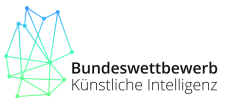© Pint of Science, 2025. Alle Rechte vorbehalten.
As technology evolves, computer science is expanding beyond its traditional limits, driving innovation in fields like healthcare, sustainability, and the arts. Yet, not all digital progress serves the public good. This session explores both the potential and the pitfalls of our digital age, where code can foster collaboration or be used for manipulation.
Tech Meets Climate: Exploring the DIY Weather Station and the Power of Interdisciplinary Innovation
Mr. Maik Benndorf
(Lecturer at Westsächsische Hochschule Zwickau)
Language: English
Discover how computer science is breaking boundaries by connecting with fields like environmental science, engineering, and even local communities. This session introduces a fully functional DIY weather station — a hands-on system that measures temperature, rainfall, wind speed and direction, and air pressure. See how combining technology and climate observation can empower individuals to gather real-time data, offering a glimpse into how interdisciplinary thinking drives innovation and helps tackle real-world challenges.
Discover how computer science is breaking boundaries by connecting with fields like environmental science, engineering, and even local communities. This session introduces a fully functional DIY weather station — a hands-on system that measures temperature, rainfall, wind speed and direction, and air pressure. See how combining technology and climate observation can empower individuals to gather real-time data, offering a glimpse into how interdisciplinary thinking drives innovation and helps tackle real-world challenges.
Turning the online world into a worse place: Digital platforms and why they suck
Prof. Dr. Frank Grimm
(Professor at Westsächsische Hochschule Zwickau)
Language: English
This talk offers a critical examination of how digital platforms, while initially attracting users with promises of convenience and connection, often evolve into systems that prioritize revenue over user well-being. By intentionally degrading the user experience—through manipulative design, intrusive ads, and addictive algorithms—these platforms raise pressing concerns about ethics, accountability, and the broader societal impact of our increasingly digital lives.
This talk offers a critical examination of how digital platforms, while initially attracting users with promises of convenience and connection, often evolve into systems that prioritize revenue over user well-being. By intentionally degrading the user experience—through manipulative design, intrusive ads, and addictive algorithms—these platforms raise pressing concerns about ethics, accountability, and the broader societal impact of our increasingly digital lives.
© die Mitwirkenden OpenStreetMap
